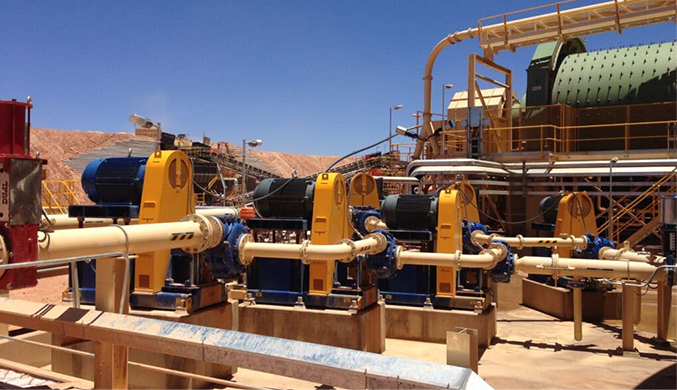English
- Afrikaans
- Albanian
- Amharic
- Arabic
- Armenian
- Azerbaijani
- Basque
- Belarusian
- Bengali
- Bosnian
- Bulgarian
- Catalan
- Cebuano
- Corsican
- Croatian
- Czech
- Danish
- Dutch
- English
- Esperanto
- Estonian
- Finnish
- French
- Frisian
- Galician
- Georgian
- German
- Greek
- Gujarati
- Haitian Creole
- hausa
- hawaiian
- Hebrew
- Hindi
- Miao
- Hungarian
- Icelandic
- igbo
- Indonesian
- irish
- Italian
- Japanese
- Javanese
- Kannada
- kazakh
- Khmer
- Rwandese
- Korean
- Kurdish
- Kyrgyz
- Lao
- Latin
- Latvian
- Lithuanian
- Luxembourgish
- Macedonian
- Malgashi
- Malay
- Malayalam
- Maltese
- Maori
- Marathi
- Mongolian
- Myanmar
- Nepali
- Norwegian
- Norwegian
- Occitan
- Pashto
- Persian
- Polish
- Portuguese
- Punjabi
- Romanian
- Russian
- Samoan
- Scottish Gaelic
- Serbian
- Sesotho
- Shona
- Sindhi
- Sinhala
- Slovak
- Slovenian
- Somali
- Spanish
- Sundanese
- Swahili
- Swedish
- Tagalog
- Tajik
- Tamil
- Tatar
- Telugu
- Thai
- Turkish
- Turkmen
- Ukrainian
- Urdu
- Uighur
- Uzbek
- Vietnamese
- Welsh
- Bantu
- Yiddish
- Yoruba
- Zulu
Telephone: +86 13120555503
Email: frank@cypump.com
Aug . 06, 2024 00:01 Back to list
Understanding the Functionality and Applications of Centrifugal Chemical Pumps in Various Industries
Understanding Centrifugal Chemical Pumps Mechanisms and Applications
Centrifugal chemical pumps are essential devices in various industries, primarily used for the transportation of fluids. They operate on a straightforward yet effective principle that utilizes rotational kinetic energy to move substances. Understanding the mechanism, design, and applications of these pumps is crucial for optimizing their use in chemical processing, water treatment, and other industrial applications.
Mechanism of Operation
At the heart of a centrifugal pump is an impeller, a rotating component that plays a vital role in fluid movement. When the impeller spins, it creates a centrifugal force that pushes the fluid outward from the center, leading to an increase in velocity and pressure. As the fluid is expelled into a volute or diffuser, its kinetic energy is converted into hydraulic energy, ensuring a steady flow through the discharge port.
The design of a centrifugal pump is generally straightforward. It consists of a casing, impeller, shaft, bearings, and mechanical seals. The casing collects and directs the incoming fluid toward the impeller, while the materials used in construction are critical for handling the specific chemicals being pumped. Common materials include stainless steel, polypropylene, and various alloys, which provide resistance to corrosion and abrasion.
Variants of Centrifugal Pumps
Centrifugal pumps come in various configurations, each suited for specific applications
. Some notable types include1. End-suction Pumps These are among the most common centrifugal pumps, where the fluid enters the impeller from the end. They are widely used in chemical processing and water supply.
centrifugal chemical pump

2. Submersible Pumps Designed to operate while submerged, these pumps are ideal for pumping water or other fluids from reservoirs or pits.
3. Multistage Pumps Featuring more than one impeller, these pumps are suitable for applications requiring high pressure, such as boiler feed water systems.
4. Magnetic Drive Pumps These pumps eliminate the need for a mechanical seal. Instead, they use magnetic coupling to transfer drive torque to the impeller, making them ideal for hazardous or corrosive liquids.
Applications in Chemical Processing
Centrifugal chemical pumps are crucial in the chemical industry. They are used for moving a variety of substances, from simple water solutions to highly viscous and corrosive materials. For instance, they can efficiently pump acids, bases, solvents, and even slurries. The adaptability in handling different chemicals makes them indispensable for processes like mixing, heating, and cooling.
In addition to chemical processing, these pumps are commonly employed in wastewater treatment plants. Here, they help in transporting sewage and wastewater, ensuring efficient processing and treatment to produce safe discharge water. Their design allows for the handling of solids and abrasive materials, which is a significant advantage in these settings.
Conclusion
Centrifugal chemical pumps are versatile and efficient devices that play a vital role in many industrial processes. Their ability to move a diverse range of fluids safely and effectively makes them indispensable in chemical, water treatment, and other related industries. With advancements in materials and technologies, the performance and durability of these pumps continue to improve, driving innovation in fluid handling systems. By selecting the appropriate type and understanding their operating principles, industries can maximize efficiency and reliability in their operations, ultimately contributing to better overall productivity.
-
ISG Series Vertical Pipeline Pump - Chi Yuan Pumps Co., LTD.|High Efficiency, Energy Conservation, Low Noise
NewsJul.29,2025
-
ISG Series Vertical Pipeline Pump-Chi Yuan Pumps Co., LTD.|High Efficiency&Energy-Saving
NewsJul.29,2025
-
ISG Series Vertical Pipeline Pump - Chi Yuan Pumps Co., LTD. | High Efficiency, Energy-Saving
NewsJul.29,2025
-
ISG Series Pipeline Pump - Chi Yuan Pumps | High Efficiency, Low Noise
NewsJul.29,2025
-
High-Efficiency Vertical Slurry Pumps for Mining & Industry Solutions
NewsJul.29,2025
-
High-Efficiency Pipeline Pump Solutions for Every Pipeline Pump Station
NewsJul.29,2025










